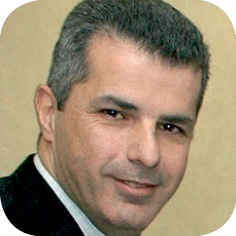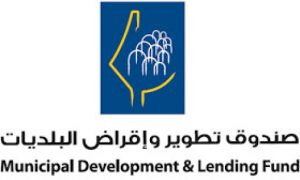The Municipal Development and Lending Fund (MDLF) is a Palestinian semi-governmental institution that works on translating local government policies into implementable programs and projects that contribute to the empowerment of local government units. Its vision is to have effective local government units that are able to deliver a better life for their citizens. Since the inception of MDLF in 2005, the purpose has been to enhance municipal performance capacities in order to improve the provision of municipal services. MDLF seeks to contribute to building the Palestinian state through improving the vital services of local governments.
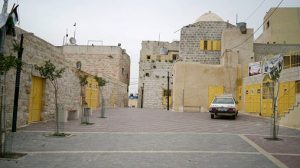
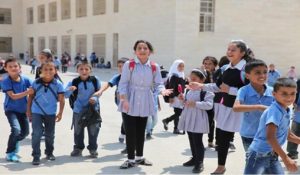
For many years, MDLF has been supporting municipalities within the guidelines stated in its bylaws. However, after President Mahmoud Abbas endorsed the MDLF law in 2016, the fund started to develop additional programs that support various local government units’ structures, such as village councils and joint service councils. Since its establishment, MDLF has never stopped working with any Palestinian municipality. The division between the West Bank and Gaza Strip in 2007 did not affect its work, and MDLF continues to serve all the 150 municipalities regardless of their location or political affiliation. This policy was clearly guided by the prime minister and the president, and agreed upon with the donors. MDLF is a highly professional organization, on both the regional and national levels, as regularly emphasized by the international donors that support the local government sector in Palestine. The MDLF board of directors is headed by the minister of local government, with members from governmental and nongovernmental institutions. MDLF reports regularly to the prime minister’s office and coordinates with all line ministries and government authorities. MDLF headquarters is located in Al-Bireh and has an important branch in Gaza city to attentively serve all 25 municipalities in the Gaza Strip. Its highly qualified and committed management and specialized teams of engineers work continuously to upgrade their capacities and remain linked to the most up-to-date technologies and world trends in the local government sector.
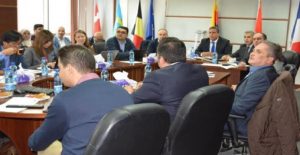
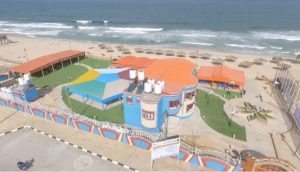
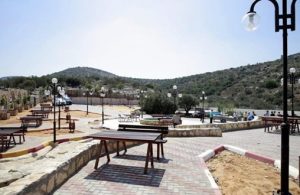
A number of international donors have offered generous support to MDLF during the past years and continue to do so, namely, The World Bank, Germany, France, Denmark, Belgium, Switzerland, the EU, The Netherlands, Sweden, and the United Kingdom. Each donor regularly sends missions to Palestine to audit the technical and financial situation of the programs for which it provides funding and receives regular annual and semi-annual reports from MDLF.
Complying with donor requirements and documentation needs is always challenging, and everything has to be accomplished according to predetermined technical and financial plans and agreed-upon budgets. MDLF has implemented thousands of donor-funded projects with hundreds of millions of dollars in municipal infrastructure services, capacity development, and innovative initiatives at the municipal level. In the last few years, MDLF has paved hundreds of kilometers in every city in the West Bank and Gaza Strip, supplied municipalities with thousands of lighting units and prepaid meters, and rehabilitated many kilometers of electrical networks. It has built tens of retaining walls and sidewalks, rehabilitated tens of water and wastewater networks, and installed thousands of water pipes and water meters. In addition, MDLF constructed tens of thousands of meters of public buildings and more than a hundred thousand meters of gardens and public parks. It has provided municipalities with needed equipment such as tractors, trailers, solid-waste containers, and garbage trucks, but bringing such equipment to the Gaza Strip has always been a challenge.
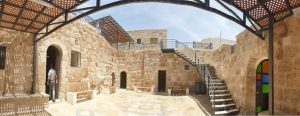
One of the cornerstones of MDLF is the Municipal Development Program (MDP). This national program is a pioneer approach in the local government sector where policies such as strategic planning, financial reforms, social accountability, transparency, and good-governance concepts are all integrated. It is the most important local government program in Palestine, and thus the Palestinian Authority supports it with 10 percent of donor contributions. Accordingly, when donors inject € 100 million into this national program, the PA puts an additional € 10 million from the Palestinian Ministry of Finance, creating a program budget totaling € 110 million. This money is distributed to the 150 municipalities in the form of municipal infrastructure and capacity-building packages. However, MDLF does not give cash to municipalities. The municipalities submit their priorities regarding the infrastructure projects needed by their communities, as stated in their strategic plans, and MDLF directly pays the contractors who implement the infrastructure projects. The money given to the municipalities is based on three criteria: performance, needs, and population.
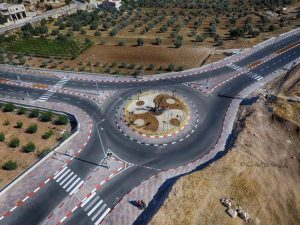
MDP is an incentive-based program that encourages municipalities to perform better since enhanced performance leads to increased funding. Performance is linked to 21 key performance indicators (KPIs), and all that the municipalities need to do in order to improve their performance is to achieve more of these KPIs to be upgraded in the allocation grading ladder. Some of these KPIs are linked to transparency, meaning that MDLF encourages municipalities to be more transparent and disclose their budgets, plans, and projects on their websites and on social media. MDLF believes that the more informed citizens are, the more involved they become and cooperate positively with their local governments by paying their fees and assisting the municipalities in whatever ways they can.

MDLF has many other programs in addition to the MDP, such as the program for the Regeneration of Historical Centers, which focuses on strengthening the institutional and technical capacity of urban areas in order to increase their involvement in planning their future. Another program is the Solid Waste Management Program that established a landfill in the southern Gaza Strip. The landfill was launched this June with a budget of around US$ 35 million. More than 46 percent of Gaza Strip inhabitants will benefit from the project. There is another program in the West Bank, jointly implemented with the Ministry of Local Government, targeting only joint service councils and village councils to support them in improving services offered to their citizens. Most importantly, four years ago, MDLF started to implement infrastructure projects in Area C, based on recommendations from the government and approval from the EU, a number of EU states, and the United Kingdom. Until now, around 60 infrastructure projects in 45 localities totaling € 20 million have been implemented in Area C, including kindergartens, roads, premises for village councils, basic water networks, solar panels, health clinics, and schools. This is a great achievement, especially since Palestinian citizens living in those areas have for decades been denied any infrastructure projects by the Israeli army. The Israeli Civil Administration prohibits Palestinian construction in Area C, citing various rationales, such as defining these areas as state land, survey land, firing zones, nature reserves, or natural parks, or by incorporating lands into the jurisdiction of settlements and regional councils. MDLF is one of the few organizations that has been able to work in Area C despite the high risk affiliated with that region, which constitutes 64 percent of the West Bank, with approximately 300,000 Palestinian inhabitants. MDLF has initiated a number of emergency programs specifically directed at Gaza Strip municipalities to assist them in restoring municipal services and to alleviate the dire situation of Gaza municipalities after continuous wars have resulted in both direct and indirect damages to the municipal sector. It is worth noting that MDLF pays a lot of attention to social and environmental safeguards, helping to ensure that municipalities not implement any infrastructure project at the expense of the citizens or the environment. Recently, MDLF has created strict guidelines and safeguards and trained all the municipalities to comply with them.
In addition to supporting infrastructure projects, MDLF puts a lot of effort into building the institutional capacity of all the municipalities in the West Bank and Gaza Strip. This includes establishing information systems for financial management, operation and maintenance, and citizen service centers. In addition, MDLF works on modernizing Palestinian municipalities by using the most updated technologies in the world, with plans that all municipalities eventually become electronic municipalities, where people can access municipal services from home 24 hours a day. Now, with the support of MDLF, all municipalities in the West Bank and Gaza Strip have their own strategic plans that are updated on a yearly basis. These plans, which identify the needs of the community and their priorities, have been proposed with the involvement and participation of all constituents of the local community, including women, youth, and disadvantaged people. At present, there are more than 80 citizen service centers in Palestine, efficiently providing quality services. Citizens no longer need to visit the mayor to obtain a service. Automation of services led by MDLF has helped create equal access to better services for citizens, and decreased, to a large extent, any possibility for corruption and nepotism. The operation and maintenance-capacity package that MDLF provides to municipalities helps them to improve operation of their public buildings and streets and become more prepared to plan maintenance strategies within assigned budgets. MDLF also works to implement the government policy adopted by the Ministry of Local Government in promoting local economic government (LED). For years, municipalities have been working hard mostly on infrastructure development. Now it is time that municipalities assume their leading role in local development with a focus on economic advancement and employment generation for their youth. MDLF has helped a number of municipalities establish a special unit for LED and prepare economic plans that encourage public-private partnerships, since the private sector plays a key role in pursuing economic development in partnership with local authorities. It is time to work together in a coordinated, systematic manner – whether between municipalities in the same geographic area or with the line ministries in order to optimize the quality of services provided to citizens and to offer a better life. Our citizens continue to suffer under military occupation and thus need the Palestinian Authority, with all its institutions on the local and central levels, to serve them through the most advanced technologies in order to strengthen their resilience and empower them towards freedom.
All images courtesy of MDLF.

